
Comorbid anxiety disorders compound challenges associated with bipolar disorder treatment.

Comorbid anxiety disorders compound challenges associated with bipolar disorder treatment.
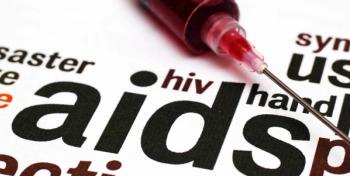
Preventing exposures to blood and body fluids is critical to preventing occupationally acquired HIV.

Four states are reporting recent progress on preventing pseudoephedrine diversion after implementing a real-time, stop-sale tracking system.

Americans are fortunate to have abundant food sources, but the flip side is the country's obesity epidemic.

Vitamin D interacts with immune system to help defend against certain types of colorectal cancer.
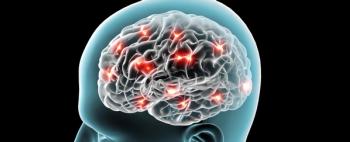
Availability of a raw methamphetamine ingredient in popular OTC products prompted national regulations to move products that contain pseudoephedrine behind the pharmacy counter.

Rapid cycling bipolar disorder occurs in up to 20% of bipolar patients, but it is difficult to treat.
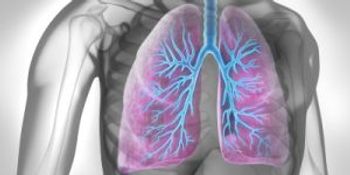
Most people hear "hospice" and think "cancer," but many end-stage chronic obstructive pulmonary disease patients also receive hospice care when their caregivers can no longer provide the medical attention they need.

Many patients with non-alcoholic fatty liver disease also have low vitamin D levels.

Gastroesophageal reflux disease and atrial fibrillation are 2 of the most significant health concerns in the United States, and researchers suspect a link between them.

Roughly half of all women experience at least 1 urinary tract infection in their lifetime. The problem becomes recurrent for many, so effective non-antibiotic preventive therapies are needed.
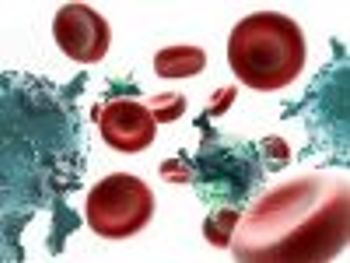
Researchers develop method to identify drug resistance mutations in viremic and suppressed patients.

Patients who take antipsychotic and antidepressant medications frequently experience sexual side effects, necessitating dose adjustments. Lithium is a cornerstone treatment for many patients with bipolar disorder, but few studies have investigated its effect on sexual function.

Several studies have reported that controlling blood pressure with medication improves cardiovascular outcomes.

Dietary supplementation with vitamins, minerals, and other substances is widespread, and medical talk shows like The Doctors and Dr. Oz sometimes promote such supplement use.

Omega-3 fatty acids appear to have numerous health benefits. Ideally, patients would incorporate foods rich in eicosapentaenoic acid and docosahexaenoic acid into their daily diets. However, many dislike the foods richest in these nutrients: fish and seafood.

Antiretroviral therapy has led to remarkable improvements in HIV-infected individuals. By suppressing HIV RNA to

Today, nearly 80% of children diagnosed with cancer survive, which is defined as living cancer-free for at least 5 years after diagnosis. However, the long-term complications of physical inactivity, chronic inflammation, nutritional challenges, and exposure to corticosteroids, antineoplastic agents, and radiation can persist.

Patients report acceptable clinical improvement and high satisfaction with a pharmacist's advice on self-managing cough and cold.
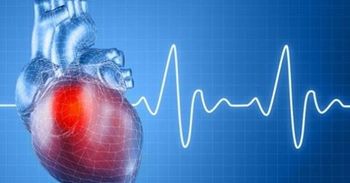
A primary goal of managing atrial fibrillation is relief of symptoms that include dizziness, fatigue, palpitations, shortness of breath, and chest pain. Yet, it is symptomless in up to one-third of patients.

Barrett's esophagus (BE) is a condition in which tissue in the esophagus is replaced by tissue similar to that found in the intestinal lining, which predisposes a patient to esophageal adenocarcinoma (EAC).

Vitamin D can stimulate the immune system to protect against a specific type of colorectal cancer.

The approximately 4% of American adults with bipolar disorder face a litany of challenges, from unpredictable recurrences of hypomanic/manic or depressive episode to poor impulse control.

Use of anticoagulants in atrial fibrillation patients remains unacceptably low, with some estimates showing that only half of patients receive anticoagulants as indicated by current treatment guidelines.

Because upper respiratory tract infections cost $40 billion annually in the United States, even a small reduction in incidence would have significant economic consequences.

Although clinicians have explored resistance and cognitive training as methods for preventing age-related declines in muscle mass and immune function, research among patients aged 70 years and older has been sparse.

Antithrombotic therapy is an essential element of treatment after patients experience acute coronary syndrome. Fortunately, prescribers can draw from a considerably larger selection of antithrombotics than ever before, as prasugrel, ticagrelor, fondaparinux, and bivalirudin have joined warfarin, unfractionated heparin, and the low molecular weight heparins in evidence-based guidelines.

Often called a living fossil, the ginkgo tree is unique in that no living variants exist, and its fan-shaped leaf impression has been identified in fossils dating back 270 million years.

Although the risk-benefit profile of pseudoephedrine is hotly debated in the health care community, the drug's vasoconstrictive actions provide highly effective nasal congestion relief.

After ringing in the New Year, Americans from all walks of life have started dieting. For the 10% to 20% of Americans who experience gastric reflux, such weight loss may be the key to reducing associated symptoms.